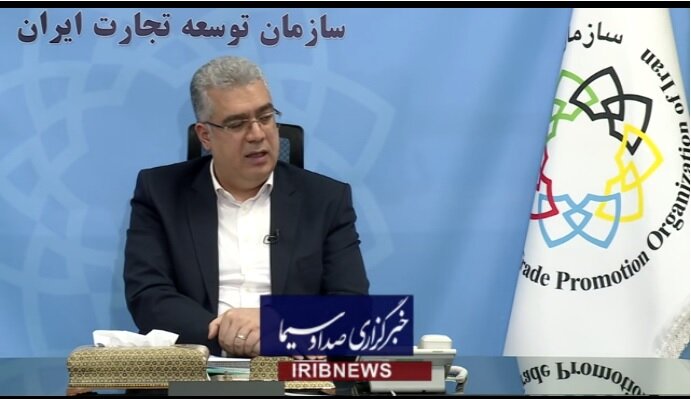Non-oil Export Development Council convenes after four years

TEHRAN - The 11th session of the Supreme Council for the Development of Non-Oil Exports was held after a four-year hiatus, with the participation of Iran's First Vice President.
In an exclusive interview with IRIB, Mohammad-Ali Dehghan Dehnavi, head of Iran’s Trade Promotion Organization (TPO), highlighted the significance of this council, which had been inactive for nearly four years.
He noted that the council had played a key role in national decision-making processes before falling into disuse.
Dehnavi explained that the revival of the council was prompted during this year’s National Export Day event, where Masoud Pezeshkian instructed its reactivation.
With the efforts of the government and the support of the first vice president and the minister of industry, mining, and trade, the groundwork for the council’s return was laid, culminating in its 11th session.
The session, chaired by First Vice President Mohammad Reza Aref, brought together all council members to discuss pressing trade issues. The meeting focused on three main areas:
Non-oil export performance
The council reviewed the statistical performance of the country’s non-oil exports. Dehnavi acknowledged that Iran’s non-oil trade balance has been negative in recent years, with a $17 million deficit recorded last year despite a positive overall trade balance. The Vice President tasked the TPOI with reversing this trend by boosting non-oil exports.
Challenges in foreign trade
The council identified several obstacles hindering foreign trade, including excessive regulations, insufficient infrastructure for exports (such as transportation and customs facilities), and challenges in export-related policies.
Dehnavi emphasized the need to align monetary and trade policies, as the former has often overshadowed the latter. The council resolved to reform trade policies to address these issues.
Proposals and resolutions
Several proposals were approved, including holding regular council sessions and establishing provincial export development task forces led by governors. These initiatives aim to make export promotion a nationwide campaign.
The council also discussed a strategic roadmap for free trade zones, aiming to transform these areas into export hubs. The TPO is preparing this document with council support.
Additionally, collaboration with the private sector was emphasized to identify and implement high-impact export projects.
Other topics included reforms in re-exports and temporary imports, with a task force comprising customs, agriculture, health, and trade organizations formed to streamline processes. The pricing of export goods at customs was also debated, with calls for a review to enhance coordination among export-related bodies.
The session concluded with plans to establish specialized commissions to maintain continuity between council meetings and ensure effective decision-making in foreign trade.
EF/MA
